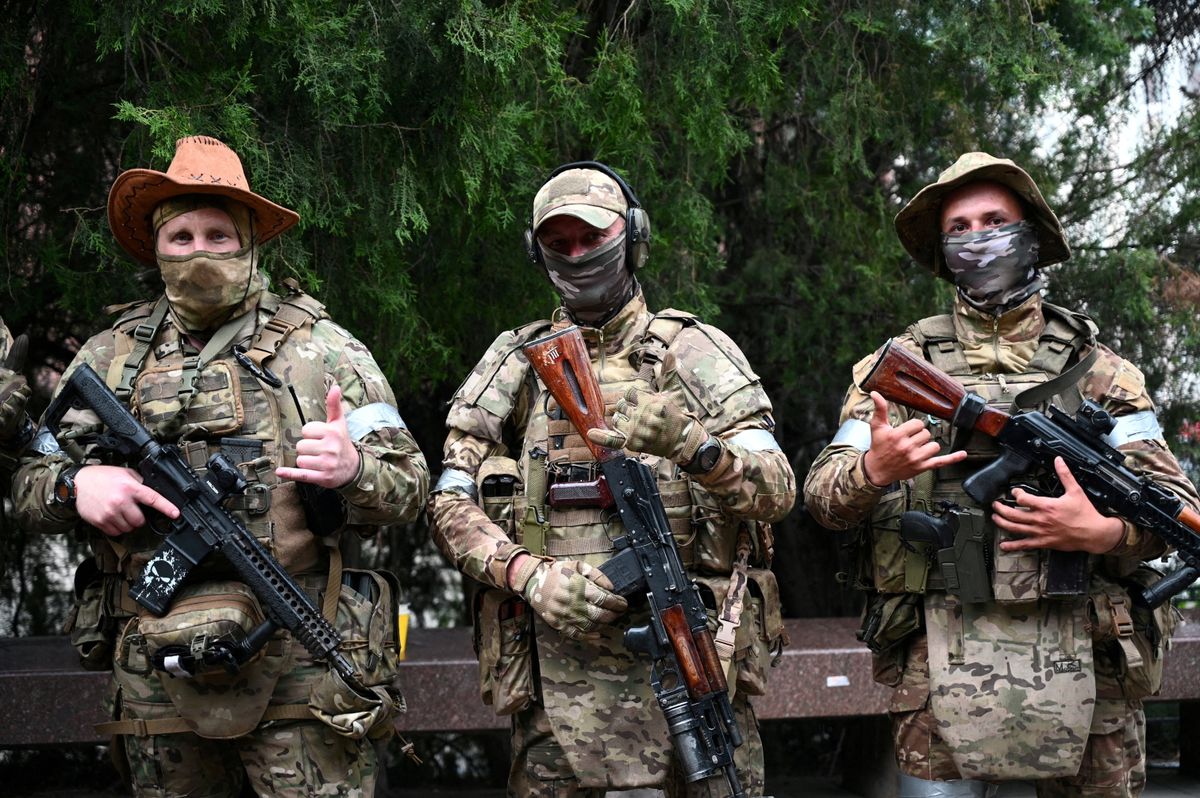Since late June, when Russia’s Vladimir Putin cut a deal with Wagner Group leader Yevgeny Prigozhin to end his mutinous march on Moscow, it has remained unclear who the remaining thousands of Wagner fighters will take orders from. That deal included a promise of safe passage for Prigozhin and some of his troops to Belarus, but that country’s president, Alexander Lukashenko, has never claimed to control their operations there.
Six weeks later, it’s still unclear.
The Institute for the Study of War, a Washington-based think tank, says that both a “Russian insider source” and a “Wagner-affiliated source” have warned this deal may have “collapsed,” triggering a return of some Wagner fighters to Russia. (ISW acknowledged Thursday it can’t yet confirm any large-scale troop movement.) Part of the problem: ISW sources say Putin and Lukashenko never agreed who should pay for makeshift Wagner facilities in Belarus.
Meanwhile, there are stories that a former Russian prison inmate, freed as part of a deal he made to fight for Wagner in Ukraine, had been charged with double murder in Russia. The BBC reported on Thursday that it has confirmed that suspects in about 20 serious offences, including rape and murder, were men recruited by Wagner to serve in Ukraine. More than 60% of Wagner’s original force of about 78,000 fighters in Ukraine are believed to have been pulled from Russian prisons.
If a disorderly disintegration of some Wagner units is taking place, they appear to pose little direct threat to Putin or his generals. But the desertion of large numbers of heavily armed, battle-hardened former convicts is not good news for either Belarus or Russia.






